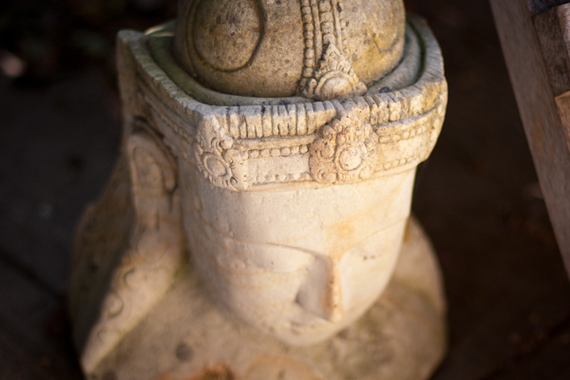More than 100 million adults in the U.S. deal with chronic pain. After reading an article by Dr. Christiane Wolf, I reached out to her to learn more.
You say that chronic pain is a malfunctioning side of evolution. What do you mean by that?
This is my theory as I've considered chronic pain. Acute pain is important; it alerts the brain that there is danger. But for chronic pain, there is no separate system. It continually alerts the brain that there is something wrong, and yet it doesn't stop. There is no way to calm it down.
Does mindfulness practice help reduce pain, or help us cope with pain better?
Both. Mindfulness can help reduce pain because it removes the worry about it, which is the other layer. Emotional and mental tension can add to physical pain. I have seen chronic pain go away via mindfulness. With systemic pain that does have a cause, mindfulness helps people cope with it better. When people rate their quality of life after mindfulness training, their scores on happiness, life satisfaction, and often activity level go up, even though the objective pain hasn't changed. One student said, "I used to be my pain. Now I'm much more."
Can you explain the phrase "suffering is optional"? I find it one of the most challenging sayings in Buddhism, because it implies I want to be in pain.
I don't like that phrase because it's confusing. I prefer to think of it like this equation from Shinzen Young: suffering = pain X worry
We typically equate pain with suffering. Pain and suffering are two different things. Nobody likes pain. But just because something is unpleasant doesn't mean we have to suffer or react against it. Think of a time when you had pain, but no suffering was involved, like getting a tattoo or giving birth.
If we put what is happening to us in a different perspective, we're suddenly able to tolerate it. In the beginning it's a little bit of a mind game. But when mindfulness students look at it, and start to investigate their own experience, it starts to change.
You talk about separating our experience of pain into three components: the physical sensation, the emotions we feel about it, and the meaning the pain has for us.
When you break it into parts, it helps make it more manageable. We work with where the suffering is the strongest.
Let's start with the physical sensation of pain. How does mindfulness deal with that?
We start to see that the physical pain is separate from the emotions we feel about it. We describe the sensation. We label it. That awareness is what is helpful.
And the emotions surrounding it?
We don't often look at how we feel about the pain. What emotion is connected to the pain? Are you feeling sad, angry, or another emotion about it?
And finally the meaning of pain? I especially related to this because I do this myself. I feel fear about what a migraine might mean for me in the future.
Much of the suffering is often in the story we tell ourselves about it. Are you running loops about the story in your head, and is that making it worse? We might be stuck in the past, for example: that surgery or accident messed me up. Or we obsess about the future: because I have this condition, I will never be able to do X. Mindfulness brings you into the present moment. Instead of ruminating or rehearsing, be present and see how you actually feel.
Where can someone look to find out more about using mindfulness practice to deal with chronic pain?
It's very difficult to start a mindfulness practice without a teacher, so finding a local class that teaches MBSR is the best approach. I like Living Well with Chronic Pain and Disease by Vidyamala Birch. There is an eight-week program called Breathworks that may help. Or try a recorded guided meditation.
How has mindfulness practice changed you?
I'm an M.D. by background, but I teach mindfulness full time now. I think that says a lot. As a physician, I became impressed with how mindfulness training is able to relieve suffering on all levels. As a physician my job was to "fix" people. As a mindfulness instructor, I give them tools to heal themselves. That's really different.
Christiane Wolf, M.D., Ph.D., is a physician turned mindfulness meditation teacher. She is coauthor of the book, The Clinician's Guide to Teaching Mindfulness.
